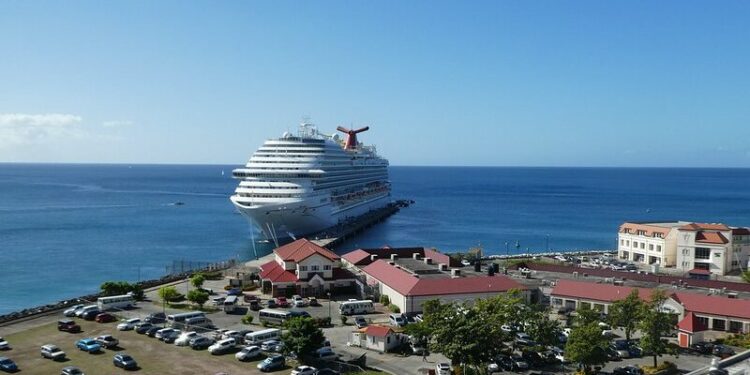Nigeria, Chile and Vietnam are among countries now backing a stronger climate goal for international shipping, but cost concerns remain
Momentum is growing behind calls to decarbonise global shipping, as several large emerging economies joined rich nations and climate-vulnerable Pacific islands in backing a strong goal at the UN’s shipping body in London last week.
Nigeria, Chile and Vietnam were among the countries calling for a net zero or zero carbon goal at the International Maritime Organization’s environmental committee meeting.
Campaign group Seas at Risk said there is now a clear majority in favour, which gives a good chance of getting the target agreed at the next meeting in June 2023.
Shipping is responsible for around 3% of global emissions. This share is expected to grow under the industry’s target to halve emissions from 2008 levels by 2050, as sectors like electricity generation clean up faster.
Like international air travel, international shipping is not mentioned in the Paris Agreement and is not covered by most countries’ climate plans.
Dwindling opposition
According to the Seas at Risk campaign, 32 countries spoke in favour of net zero or zero carbon and 10 spoke against it. The group said in a statement this represents a “dwindling opposition” as, at the last meeting in May 2022, 24 countries were opposed.
Developed countries like the USA and most of Europe supported zero carbon. So did several island nations that are threatened by sea level rises like the Maldives and the Marshall Islands.
Marshall Islands negotiator Albon Ishida said: “We are the world’s most climate-vulnerable state and we are calling for a 1.5[C]-aligned policy. We are among the many, many that will be sacrificed as collateral damage in this emergency which we have neither asked for nor caused.”
He added that an 80% reduction by 2040 and zero emissions by 2050 were “the limits science is telling us are the minimum needed to keep a 1.5 agenda on the timetable. All the science and the progressive industry are telling us this is technically achievable and feasible.”
At the IMO, the chair tries to reach consensus. If he’s unable to then countries vote and the position with the most votes wins.
The 2050 target could be to emit zero greenhouse gases or to emit net zero greenhouse gases. Net zero means that gases could be emitted but would have to be made up for by carbon offsets. Most countries preferred absolute zero.
Other topics for debate at June’s environmental committee meeting include interim targets for 2030 and 2040, and whether and how to impose a carbon price on ship emissions.
Source: ClimateChangeNews



Recent Comments